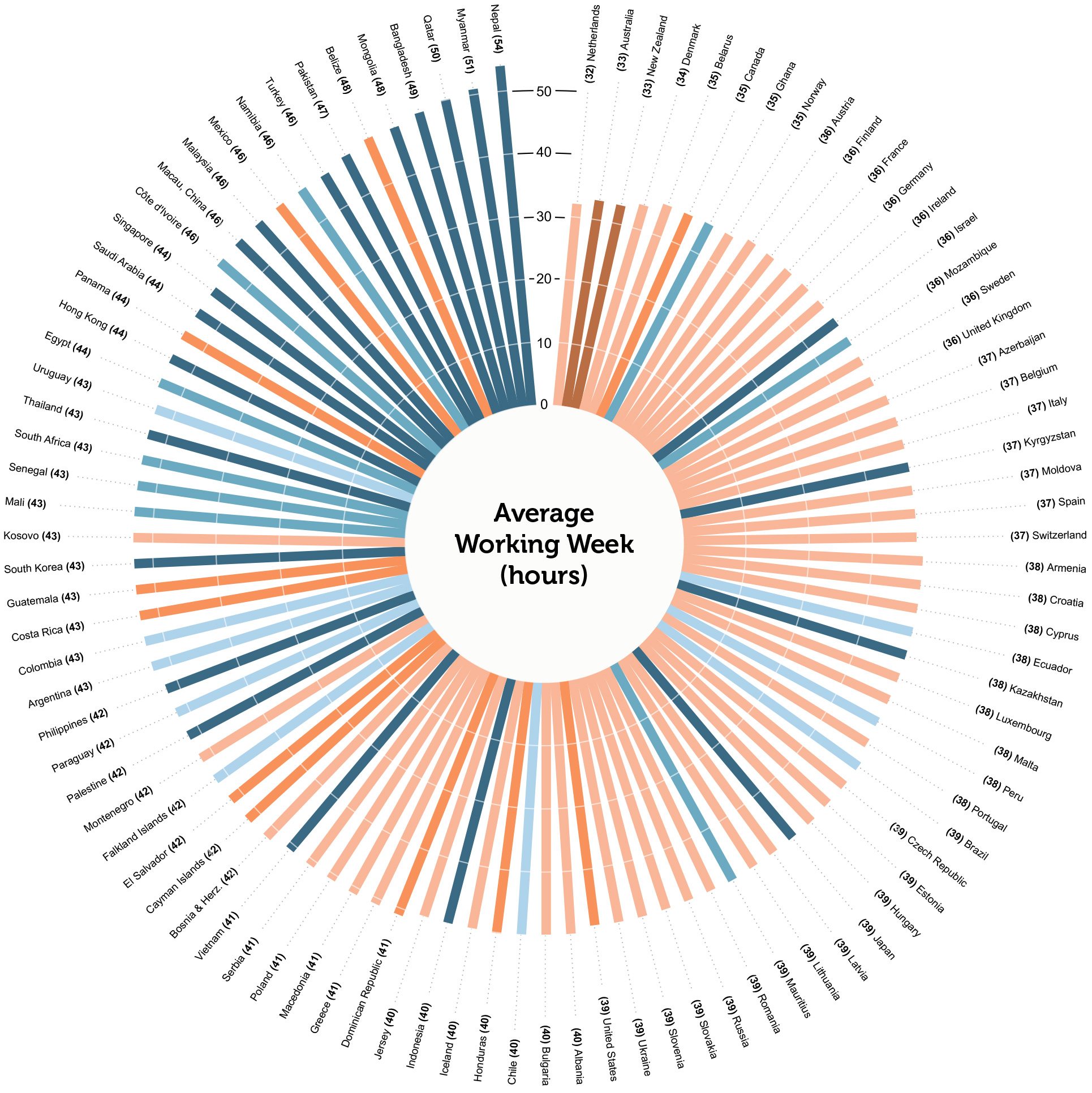Singaporeans work an average of 44 hours per week

Wherever you are in the world, working is a big part of our lives, and while we may not think too much about it, the way we approach our working lives is massively impacted by the national culture towards work.
While some countries value a positive work-life balance, others consider devotion to their employers as a hallmark of working culture. So what are the different cultural attitudes towards work around the world?
Working hours
One of the most striking differences in various working cultures is the length of the working week. While Sweden’s recent experiment with 6-hour working days has been put on hold, the working week varies hugely around the globe:
The average working week around the world, image via RS Components
According to data collected by the International Labour Organization, there is a huge difference in the average working week, with the 32-hour week in the Netherlands a whopping 22 hours shorter than the 54-hour average week in Nepal.
European countries generally have shorter working weeks, while there is a culture for longer hours in Asian countries and in the Americas.
If you believe in shorter working weeks, than Australasia is the continent for you. Aside from the Netherlands, no other country has a lower average working week than Australia or New Zealand, with one company in New Zealand having successfully trialled a four-day working week recently.
Also read: 84% of hiring managers are getting gig workers, and so should you
Work and religion
In Western and predominantly Christian-based countries, the standard working week is Monday-Friday, but the relationship between work and religion varies elsewhere.
In Israel, for example, the working week instead runs from Sunday-Thursday, allowing workers to observe Shabbat. This Jewish holy day runs from sundown on Friday to sundown on Saturday, with Jewish people traditionally refraining from performing any type of work during the Sabbath.
In Islamic countries, prayer time is highly revered, and in the United Arab Emirates, scheduled prayer times take precedence over meetings and other business events, while the working day is shortened by 2-3 hours during Ramadan.
Respect and traditions
Around the world, there are differing cultural traditions and signs of respect, many of which extend to places of work. In Argentina, it is polite to welcome people, both socially and professionally, with un beso — a kiss on the right cheek.
While most of us are familiar with Spanish siestas, other countries also have traditional breaks in the working day. In Sweden, there is a long-standing belief that regular breaks increase productivity. Fika is a formal coffee break, where Swedish co-workers relax over coffee and sweet pastries at 9 AM and 3 PM to promote conversation and camaraderie in the office.
Working laws
Finally, in many countries, the national culture towards work is galvanised through laws to ensure certain rights for workers. In France, the Right to Disconnect law ensures that French professionals are not responsible for responding to emails that arrive after working hours.
If you’re expecting a baby, you might be just a little jealous of Icelandic parents, who both receive an initial 3 months’ parental leave together, with an additional three months leave to share. If that’s not enough, each parent also receives 80 percent of their salary while on leave, too.
Working cultures vary around the world, with different attitudes hugely affected by tradition, laws and religion.
—-
e27 publishes relevant guest contributions from the community. Share your honest opinions and expert knowledge by submitting your content here.
Photo by Christine Donaldson on Unsplash
The post A look at workweek hours and differences in work cultures around the world appeared first on e27.
